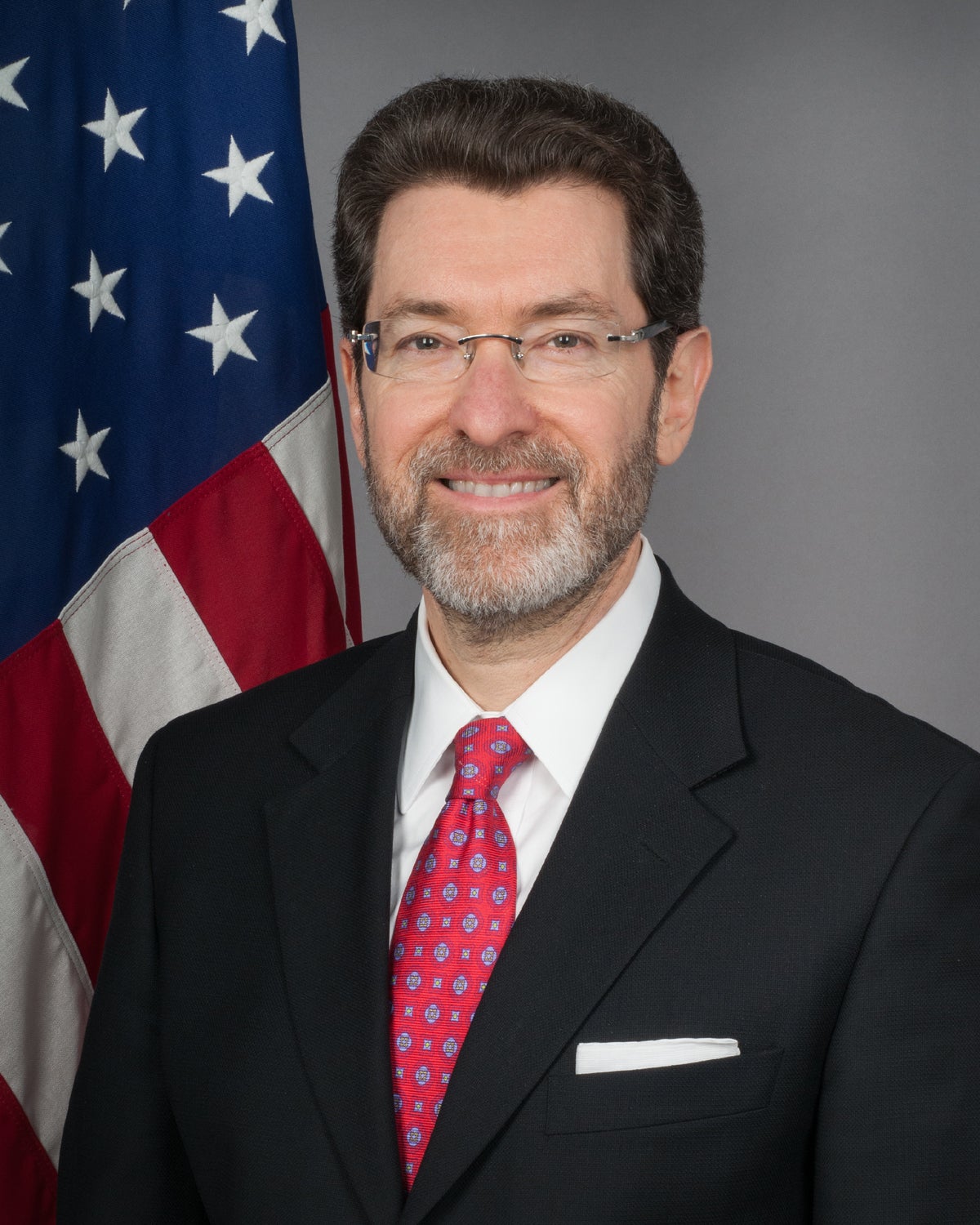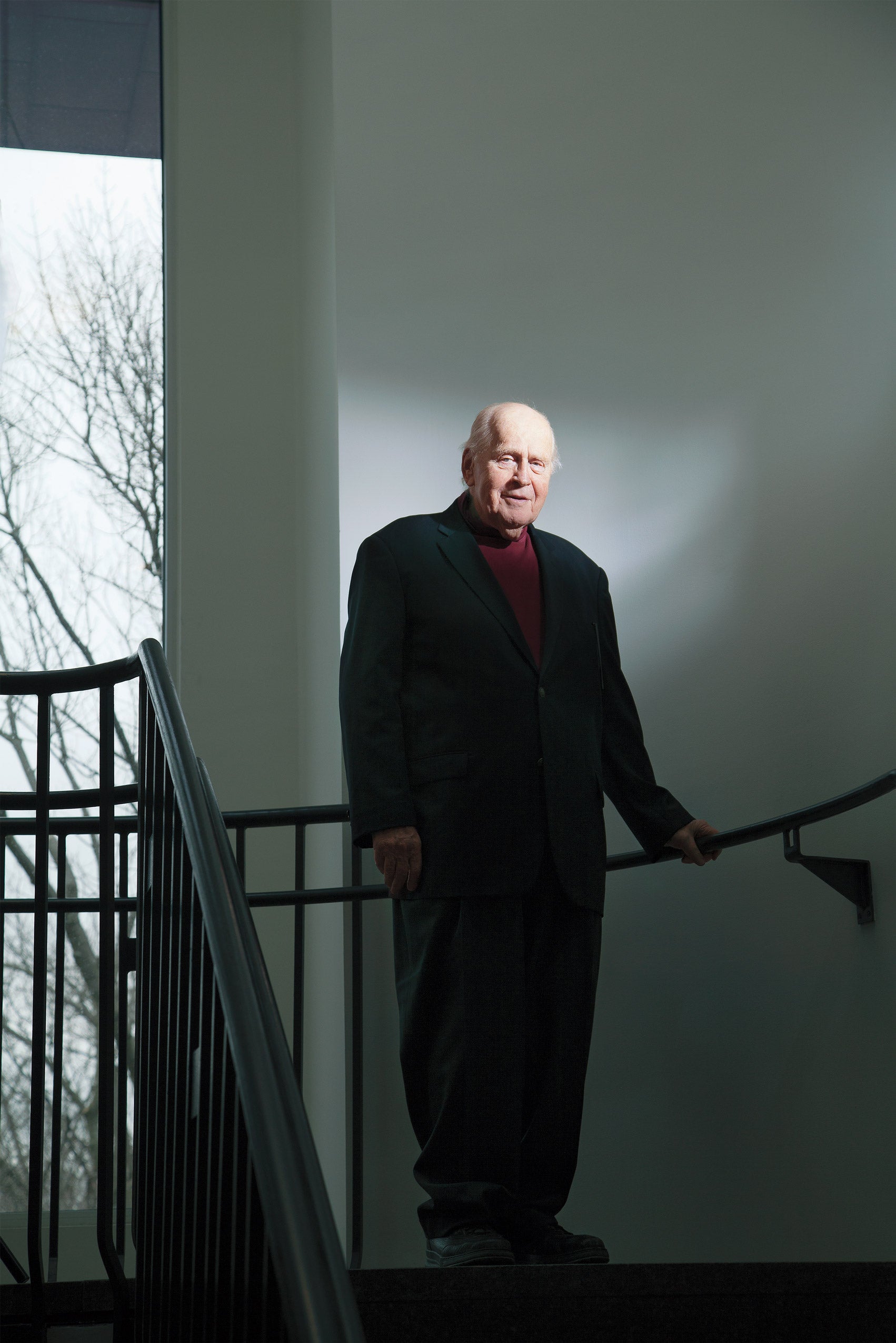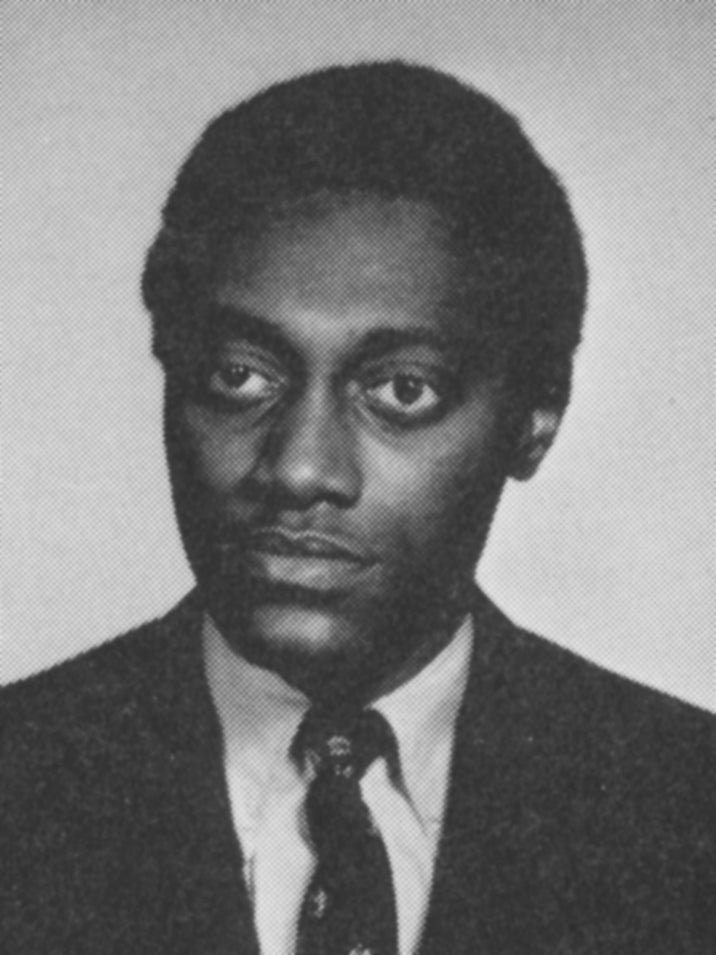People
Alan Dershowitz
-
Dershowitz to defend Trump at trial
January 17, 2020
Alan Dershowitz will be presenting oral arguments before the U.S. Senate at the impeachment trial for President Donald Trump. In a brief cell phone conversation Friday morning, Dershowitz said, “I can confirm that I’ll be presenting oral arguments.” Then he cut the conversation short and referred to his statement on Twitter. ...Laurence Tribe, a professor of constitutional law at Harvard Law School and a frequent Island visitor, also weighed in. “My former colleague Alan Dershowitz knows a lot about criminal law but not much about constitutional law. He’s flashy but not all that substantive. But flashiness isn’t exactly lacking on Team Trump,” Tribe wrote in an email to The Times. “So adding Dershowitz to the defense team suggests that Trump intends to push the argument that impeachable offenses have to be statutory crimes like blackmail or robbery, but that’s definitely wrong and reflects serious ignorance about how the US Constitution works. For constitutional expertise and legal acumen, I’d pit my own former student Adam Schiff against Alan Dershowitz any day.”
-
Hamilton Wouldn’t Impeach Trump
October 15, 2019
An op-ed by Alan Dershowitz: What is an impeachable offense? Rep. Maxine Waters, chairman of the House Financial Services Committee, says the definition is purely political: “whatever Congress says it is—there is no law.” She’s wrong. At the Constitutional Convention of 1787, the Framers debated impeachment of a president. Some argued for the power of Congress to remove the president for “maladministration” or other open-ended terms that appeared in several state constitutions. Others, including James Madison, opposed such vague criteria, fearful that they would turn the republic into a British-style parliamentary system, in which Congress could remove a president over political differences—effectively a vote of no confidence. That, Madison argued, would be the “equivalent to tenure during pleasure of the Senate.” The Framers wanted an independent president who could be removed only for genuine wrongdoing. So they agreed to the criteria that became part of the Constitution: “treason, bribery, or other high crimes and misdemeanors.”
-
In Defense of Harvey Weinstein’s Harvard Lawyer
March 4, 2019
The law professor Ronald S. Sullivan Jr. is among the most accomplished people at Harvard. He has helped to overturn scores of wrongful convictions and to free thousands from wrongful incarceration. ... Sullivan faces this “clamor of popular suspicions and prejudices” because he agreed to act as a criminal-defense attorney for an object of scorn and hatred: Harvey Weinstein. ... Catharine MacKinnon, Harvard’s James Barr Ames Visiting Professor of Law, emailed: The issue is not whether Ron can represent reviled clients accused of crimes and still be the faculty dean of a college. Of course he can. The issue is substantive. ...The Harvard law professor Lawrence Lessig echoes the argument that it’s possible to be a survivor of sexual assault and feel comfortable with Sullivan’s choice. ...“The skills, capacities, and dispositions that would help to make a person a valued defense counsel are also the skills, capacities, and dispositions that would help to make a person a valued Faculty Dean,” [Randall Kennedy] argued. ... The Harvard professor Jeannie Suk Gersen emailed me her concerns with such “processes”: "Professor Sullivan has chosen to represent and defend persons whom many people would not defend. Strong disagreement with those choices is of course part of the exploration of differences of principle and opinion that we’d hope for in a university." ... “Little more than half a century ago, mainstream lawyers were frightened away from defending alleged Communists who faced congressional witch hunts, blacklisting, criminal trials, and even execution,” Harvard Law’s Alan Dershowitz wrote. ... The Harvard professor Janet Halley calls Harvard’s actions “deeply disturbing.” She explained in an email: The right to counsel even for the most despised defendants, the basic role of counsel in our legal order, the presumption of innocence, academic freedom, and the right of University employees to assist persons accused in the University’s Title IX proceedings—are all implicated here. ... The Harvard law professor Scott Westfahl, however, defended the idea of a climate review, also by email. ... “We are all better off as a result,” and he noted, “I completely support the right of Professor Sullivan, an extremely talented defense lawyer, to take on a very difficult case. Should Mr. Weinstein be convicted, there will be absolutely no doubt that he received a fair hearing with the best possible defense counsel.”
-
Q&A with Norman Eisen ’91
January 29, 2019
On unexpected heroes, revenants, and being the ‘fun sponge’
-
Some spirited sniping between two Harvard Law School giants might be funny in some context, were the fate of Western democracy not potentially tottering in the balance. In an Ali-Frazier battle of legal minds, former federal judge Nancy Gertner this week smote celebrated legal scholar Alan Dershowitz in the opinion section of The New York Times, accusing him of falsely smearing Robert Mueller, the special counsel investigating Russian interference in the 2016 election and whether or not the Trump campaign was in on it. Gertner and Dershowitz are longtime friends, but the highbrow exchange had an edge. Gertner, a senior lecturer at Harvard Law School, lumped Dershowitz, the loquacious Harvard law professor emeritus, in the same paragraph with partisan mouthpieces Rush Limbaugh and Sean Hannity.
-
Trump Tried to Fire Mueller. So What?
January 29, 2018
The saga of Donald Trump and Robert Mueller took a dramatic new turn on Thursday night when the New York Times first reported that the president had ordered the special counsel to be fired in June last year...We asked legal experts whether they think Mueller now has enough evidence to pursue obstruction of justice charges against the president, or if a different outcome is more likely...[Laurence Tribe]: The president’s foiled effort to rid himself of the Mueller investigation in June 2017, and his now-exposed invention of patently phony excuses for doing so—much as he had invented fake reasons for firing Comey before admitting his actual Russia-related reason on national television—eliminates any possible defense that Trump was clueless about the relevant rules...[Alan Dershowitz]: A president cannot be accused of obstruction for merely exercising his constitutional authority regardless of his motive...[Alex Whiting]: In an obstruction case against President Trump, it is unlikely that there will be a single piece of smoking-gun evidence.
-
Donald Trump has congressional immunity. Yes or no?
December 20, 2017
A response to Laurence Tribe by Alan Dershowitz. My colleague Larry Tribe’s response is unfortunately not responsive to my arguments. He erects several straw men, which he proceeds to knock down, but he fails to respond to my most compelling arguments. Two striking examples: Larry correctly points out that congressional immunity is based explicitly on the text of the Constitution, but he fails to deal with my other primary example—judicial immunity.
-
A Moral Adventure in the Law
May 18, 2017
In Alan Stone's classes, his delight in teaching is palpable, and the topics can be startling.
-
Tribute: James Alan McPherson ’68
October 21, 2016
Not everyone at the Harvard Law School in the mid to late 1960s understood that a student named James Alan McPherson—a young African-American man who would later go on to be the first in our class to receive a McArthur “genius” grant—was in fact a genius.
-
Dershowitz and Other Professors Decry ‘Pervasive and Severe Infringement’ of Student Rights
May 19, 2016
A group of law professors are accusing the civil rights office of the U.S. Education Department of taking “unlawful actions” that have led to “pervasive and severe infringements” of speech rights and due-process protections on college campuses. An open letter signed by Harvard University professor Alan Dershowitz and 20 other legal scholars blasts a series of directives issued by the federal office to schools on dealing with sexual misconduct and harassment complaints from students...Other signers include New York University law professor Richard Epstein, Harvard law professor Elizabeth Bartholet, University of Pennsylvania law professor Stephanos Bibas and UPenn history professor Alan Charles Kors, co-founder of the Foundation for Individual Rights in Education.
-
A collection of prominent law school professors, including Harvard’s Alan Dershowitz, shot back at President Barack Obama’s Education Department over its practice of using “Dear Colleague” letters to lay down policy mandates that ride roughshod over Americans’ constitutional rights. A letter from the educators dated Monday asserts that the department’s civil rights office “has unlawfully expanded the nature and scope of institutions’ responsibility to address sexual harassment” through its directives regarding Title IX, the 1972 law that bans discrimination on the basis of sex in providing access to education...Dershowitz joined three colleagues from Harvard Law School in Cambridge to sign the letter, along with 17 other professors hailing from schools scattered across the country. The letter also quotes one of the signatories, Harvard civil rights expert Elizabeth Bartholet, who called the elimination of due process “madness” in 2014.
-
Sex allegations against Dershowitz called ‘mistake’
April 11, 2016
Two plaintiffs’ lawyers admitted Friday that they made “a mistake” when they accused famed attorney Alan Dershowitz of having sex with their client when she was a minor. The admission came in a joint statement released by the lawyers, Paul G. Cassell and Bradley J. Edwards, and Dershowitz to settle defamation suits the two sides filed against one another in state court in Florida. “Edwards and Cassell acknowledge that it was a mistake to have filed sexual misconduct accusations against Dershowitz,” the statement said. “[A]nd the sexual misconduct accusations made in all public filings ... are hereby withdrawn. Dershowitz also withdraws his accusations that Edwards and Cassell acted unethically.”
-
Law School Affiliates Remember Alum Scalia for Fiery Personality, Contributions to Law
February 15, 2016
Harvard Law School affiliates remembered alumnus and Supreme Court Justice Antonin G. Scalia, who died Saturday at age 79, for his vibrant, fiery personality and his substantial contributions to United States law. “Justice Scalia will be remembered as one of the most influential jurists in American history,” Law School Dean Martha L. Minow wrote in a statement. ... Law School professor Alan M. Dershowitz, who knew Scalia personally, often found himself squaring off against the justice. Dershowitz said. “I disagree with almost all of his opinions, but I found him to be a formidable intellectual adversary.”....Law professor Charles Fried, who has written extensively on Scalia’s judicial stances, wrote in an email, “I knew him in so many ways over so many years. I am very sad about this great man's death.”...Law professor Richard Lazarus penned an op-ed in the Harvard Law Record extolling Scalia’s contributions to the art of oral argument. In a Bloomberg View piece, columnist and Law professor Noah R. Feldman wrote, “Antonin Scalia will go down as one of the greatest justices in U.S. Supreme Court history -- and one of the worst.” Law Professor Laurence H. Tribe commented in Politico Magazine, “To say that Scalia will be missed is an understatement.”
-
On Saturday, Supreme Court Justice Antonin Scalia died at the age of 79. Harvard Law Emeritus Professor Alan Dershowitz, who knew Justice Antonin Scalia for many years, joined WBUR’s Weekend Edition Sunday to talk about Scalia’s innovative opinions and legacy.
-
Alan Dershowitz on the Defense (His Own)
December 14, 2015
Last month, demonstrators at Johns Hopkins University interrupted Alan M. Dershowitz as he was giving a fiery speech defending Israel. The disruption normally would not have fazed Mr. Dershowitz, a former Harvard Law School professor who thrives on controversy and relishes taking on opponents in and out of the courtroom. The protesters, however, were not challenging his Middle East politics. Instead, they held up a sign reading, “You Are Rape Culture.” Mr. Dershowitz knew what it meant. A decade ago, he had defended a friend, a money manager named Jeffrey E. Epstein, after authorities in Palm Beach, Fla., found evidence indicating that he was paying underage girls to give him sexual massages. The lawyer led a scorched-earth attack on the girls and, with a team of high-priced lawyers, cut a plea deal for Mr. Epstein that the local police said was too lenient. Over a five-decade career, Mr. Dershowitz has represented some of America’s most prominent criminal defendants, including O. J. Simpson, Leona Helmsley, Mike Tyson and Claus von Bulow. Now, he finds himself on the other side, in a legal battle to clear his own name. At 77, he is struggling to absorb a bitter lesson — that choosing the wrong client can exact its own cost.
-
Final score: Dershowitz 137, BDS 101
November 3, 2015
Lawyer, academic, and political commentator Professor Alan Dershowitz won over a packed debate on BDS at the Oxford Union, with the motion ‘Is the BDS movement against Israel wrong?’ being carried with 137 votes to 101. The lively event on Sunday night pitted Dershowitz against British human rights activist Peter Tatchell, who has campaigned on various issues and notably attempted to commit a citizen’s arrest on Zimbabwean president Robert Mugabe in 2001.
-
Alan Dershowitz’s History of Jewish Lawyers
September 21, 2015
Last year, lawyer Alan Dershowitz, known for defending high-profile clients such as O.J. Simpson, Michael Milken and Claus von Bulow, won an unusual case: He successfully argued that the biblical Abraham was not guilty of the attempted murder of his son, Isaac. “It got Abraham off,” he jokes. His argument was part of a mock trial at a synagogue in Manhattan, and it inspired him to write his latest book, “Abraham: The World’s First (But Certainly Not Last) Jewish Lawyer.” Coming out Oct. 6, the book offers a history of Jewish lawyers, from Abraham through figures like the French jurist and law professor René Cassin and Justice Ruth Bader Ginsburg.
-
The Unsafe Marketplace
May 28, 2015
An op-ed by Alan Dershowitz. The current code word being tossed around to protect political correctness from competition in the marketplace of ideas is “unsafe.” “I feel unsafe” has become the argument stopper on many university campuses. Efforts have been made to shut down controversial events or speakers, some of which have succeeded, at MIT, the University of Michigan, Northeastern University, Oxford, Hampshire College, Smith College, and other great universities on the grounds that students would feel “unsafe.” Students must, of course, be and feel physically safe in their dorms, classrooms, and campuses. That’s what university and city police are for: to protect against physical assaults and threats. But no one on a university campus should be or feel safe or protected when it comes to the never-ending war of ideas.


